Shows

TED HealthWhy venting doesn’t help you deal with anger | Jennifer ParlamisDoes venting actually help you cool off, or does it just add fuel to the fire? Social psychologist Jennifer Parlamis busts common myths about anger, showing how curiosity — not catharsis — can keep you calm. Discover the surprising science behind anger management and four practical tools for building stronger relationships from a researcher who’s rethinking Freud, one deep breath at a time.Learn more about our flagship conference happening this April at attend.ted.com/podcast Hosted on Acast. See acast.com/privacy for more information.
2026-01-0622 min
I’m Glad I Know That Now!Collaborative Conflict Culture, with Dr. Jessica Katz JamesonHave you ever wondered how to communicate well to manage conflict? We often think of conflict as inherently bad, but instead, if we think of it as normal and natural, could there be such a thing as collaborative conflict management? It turns out that although we often shy away from conflict, it can actually be useful when we know how to handle it well. In particular, when we approach interactions with a mindset of Listening, Engaging, Acknowledging, Rapport building and Nurturing—that is, using the LEARN framework—we not only build trusting relationships, we also contribute to a workplace cult...
2025-11-2038 min
I’m Glad I Know That Now!Part III: From Micro to Macro, How Initial Ideas Lead to Societal Implications with Dr. Ellen Giebels Euwema, M., & Giebels, E. (2024). Conflict management and mediation. Edward Elgar. https://doi.org/10.4337/9781035331536
2025-09-3034 min
I’m Glad I Know That Now!Part II: From Micro to Macro, How Initial Ideas Lead to Societal Implications with Dr. Randall PetersonPeterson, R. S., & Brown, G. (2022). Disaster in the Boardroom: Six Dysfunctions Everyone Should Understand. Palgrave MacMillan. Peterson, R. S., & Mannix, E. A. (Eds.) (2003). Leading and Managing People in the Dynamic Organization. Erlbaum.
2025-09-3021 min
I’m Glad I Know That Now!Part I: From Micro to Macro, How Initial Ideas Lead to Societal Implications with Dr. Tricia JonesJones, T. S., & Brinkert, R. (2008). Conflict coaching: Conflict management strategies and skills for the individual. Thousand Oaks, CA: Sage Publications.“Conflict Coaching: Adding a Critical Forum to Help Fix the Fuss”Tricia S. Jones, Prof. Temple University Where It Began – the MicroCommunication Scholar; Focus on Interaction Analysis and Stochastic Modeling in Divorce and Child-Custody Mediation (1985, 1989)Nascent ADR Field (Pound Conference 1977; burgeoning court mediation programs; fueled by need for responsive legal systems)State Justice Institute Grant (1996); Under-Utilization of Mediation; Concerns About Mediation EfficacyBuilding Conflict Management Systems and Processes to Empo...
2025-09-3023 min
TED演讲精选261 为什么发泄不能帮助你处理愤怒发泄情绪真的能帮助你冷静下来吗?还是只是火上加油? 社会心理学家珍妮弗‧帕拉米斯(Jennifer Parlamis)会在演说中揭穿关于愤怒的常见迷思,指出保持冷静的关键不是情绪发泄,而是好奇心。来看看这场演说,探索愤怒管理背后令人惊讶的科学,这位重新思考佛洛伊德观点的研究者还会提供学习四种实用工具,帮助你建立更稳固的人际关系,一个呼吸一个呼吸慢慢来。
2025-09-1315 min
Coach-to-go#249 Dampf ablassen reduziert nicht zwangsläufig Ärger und WutSend us a textWut und Ärger sind im Berufsalltag immer wieder ein Thema. Manchmal offen, manchmal subtil. Oft spürst du sie schon im Raum, bevor ein Wort fällt. Ein Augenrollen, ein scharfes Abkürzen im Ton, eine Tür, die etwas zu laut ins Schloss fällt. Wir alle kennen diese Momente. Die Frage ist: Was tun wir dann?Viele greifen zum vermeintlich naheliegenden Mittel: Dampf ablassen. Mal laut, mal leise, mal in endlosen Schleifen im Gespräch mit Kollegen und Kolleginnen oder im privaten Umfeld. Schließlich heißt es doch: „Besser raus...
2025-09-1017 min
TED Talks DailyWhy venting doesn’t help you deal with anger | Jennifer ParlamisDoes venting actually help you cool off, or does it just add fuel to the fire? Social psychologist Jennifer Parlamis busts common myths about anger, showing how curiosity — not catharsis — can keep you calm. Discover the surprising science behind anger management and four practical tools for building stronger relationships from a researcher who’s rethinking Freud, one deep breath at a time.For a chance to give your own TED Talk, fill out the Idea Search Application: ted.com/ideasearch.Interested in learning more about upcoming TED events? Follow these links:TEDNext: ted.com...
2025-08-1616 min
I’m Glad I Know That Now!Part II: Fighting Gun Violence in Philadelphia, with Dr. Jennifer MidberryIn this two-part episode, we first talk with David Brown about his work as Executive Director of the Civic Coalition to Save Lives and efforts to reduce gun violence across Philadelphia, which declined by 41% from 2023 through 2024, but still has a long way to go. Prevention, intervention, and enforcement (PIE) are three pillars of violence prevention; these pillars require collaboration with communities. So how do those working to prevent gun violence engage with the community with intentionality and with respect? In part two, we talk with Dr. Jennifer Midberry, Associate Professor of Journalism in Klein College, about how sh...
2025-08-0730 min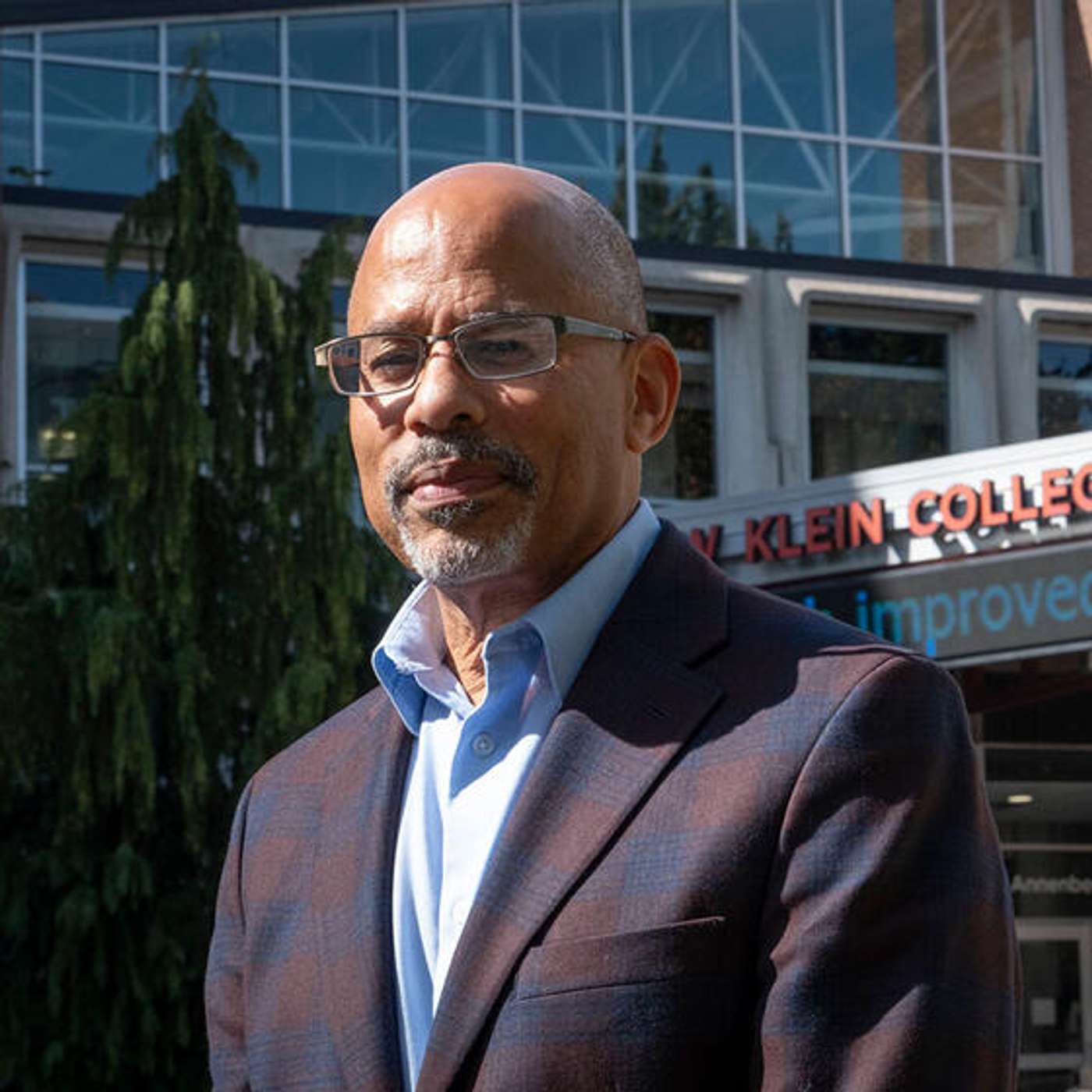
I’m Glad I Know That Now!Part I: Fighting Gun Violence in Philadelphia, with David BrownIn this two-part episode, we first talk with David Brown about his work as Executive Director of the Civic Coalition to Save Lives and efforts to reduce gun violence across Philadelphia, which declined by 41% from 2023 through 2024, but still has a long way to go. Prevention, intervention, and enforcement (PIE) are three pillars of violence prevention; these pillars require collaboration with communities. So how do those working to prevent gun violence engage with the community with intentionality and with respect? In part two, we talk with Dr. Jennifer Midberry, Associate Professor of Journalism in Klein College, about how s...
2025-08-0724 min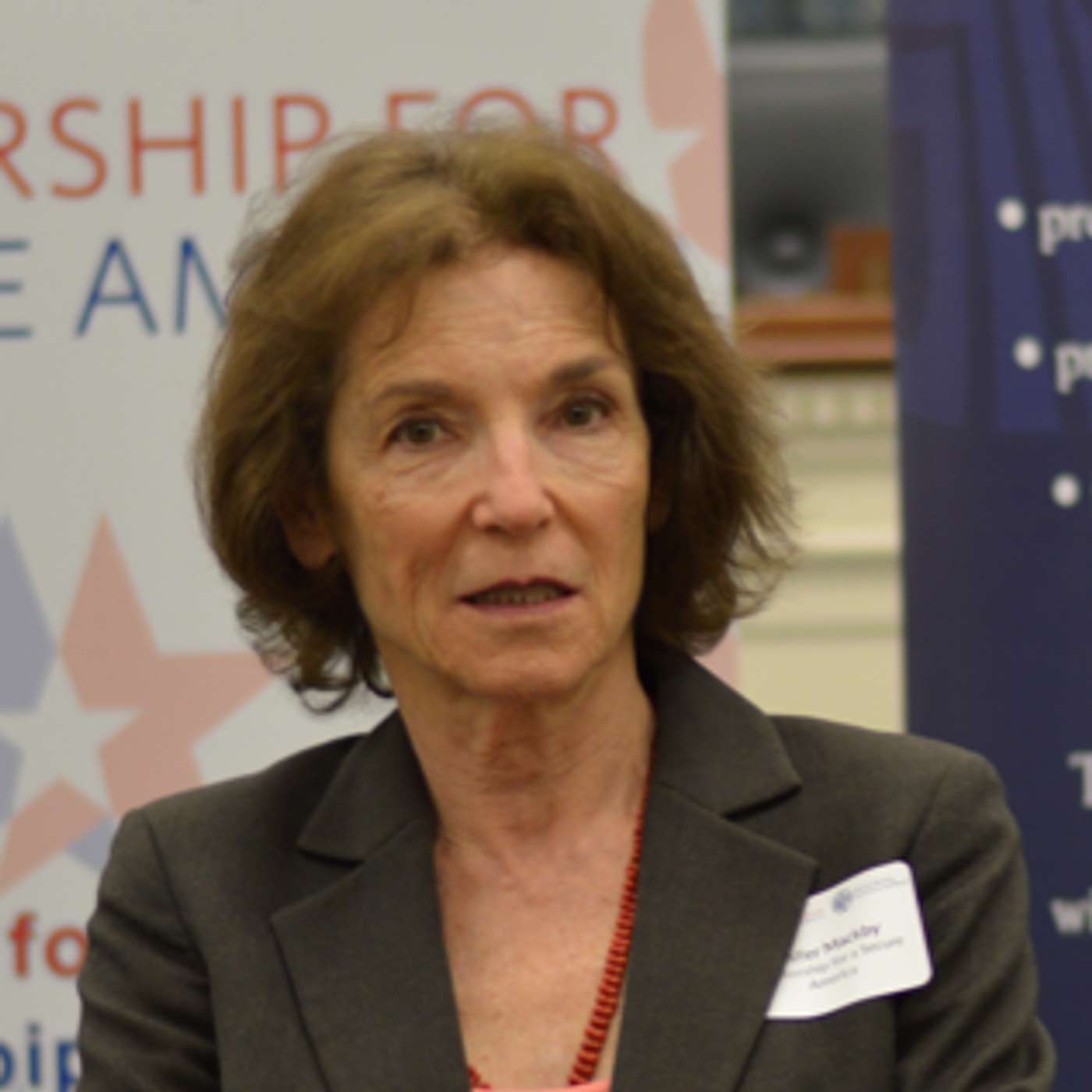
I’m Glad I Know That Now!Negotiating Disarmament Treaties, with Jenifer MackbyJenifer Mackby is a Consultant at the National Academy of Scientists and the InterAcademy Partnership, where she is co-director of a project on a Biological Weapons Convention Scientific Advisory Body. She is also a Non-Resident Executive Fellow at the Geneva Centre for Security Policy, and a Senior Advisor at the Partnership for a Secure America. Previously, she was a Fellow at the Center for Strategic and International Studies, a Senior Fellow at the Federation of American Scientists, and a Senior Political Affairs Officer at the United Nations. She has led projects on U.S.-U.K. Nuclear Cooperation, Asian...
2025-03-0638 min
Article to AudioA Buddhist Approach to Paradox, with Dr. Hee-Chan SongDr. Hee-Chan Song, a faculty member at Sasin Graduate School of Management at Chulalongkorn University in Thailand, shares his groundbreaking research on understanding conflicts and tensions through the lens of Buddhist philosophy. In this episode, he delves into how language shapes our perceptions, creates divisions, and contributes to conflicts, while offering powerful insights on how silence and mindful reflection can help us rethink and resolve these challenges. The article referenced in the episode:Song, H., (2021) How Do Buddhist Monks Frame Conflicts? A Buddhist Approach to Paradox. Negotiation and Conflict Management Research 15(2), 148-165. https://doi.org/10.34891/w...
2024-12-2116 min
Article to AudioCan Confidence Influence Persuasiveness in Disagreements by Conveying Competence versus Dominance? The Moderating Role of CompetitivenessRees, L. & Tsai, M. & Kopelman, S. & Hu, H., (2024) “Can Confidence Influence Persuasiveness in Disagreements by Conveying Competence versus Dominance? The Moderating Role of Competitiveness”, Negotiation and Conflict Management Research 17(2), 153-181. Research has demonstrated that confident individuals gain social influence because their confidence signals competence rather than dominance in settings in which they do not experience a disagreement with others. We extend this research by exploring felt competitiveness, as reflected by perceptions of goal opposition between perceivers and others. In settings where people experience a disagreement, we explore the impact of felt competitiveness on the association between expressed conf...
2024-12-0424 min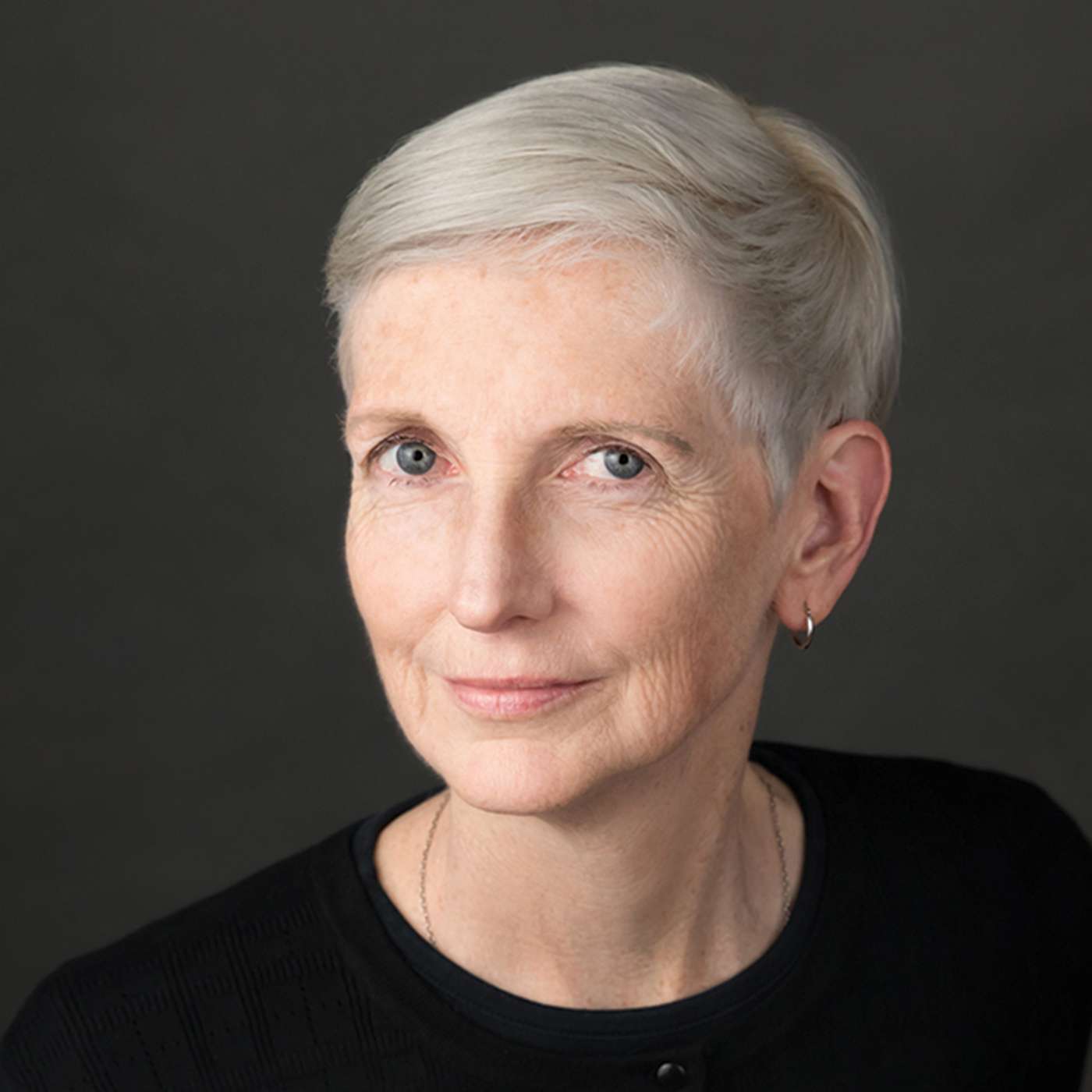
I’m Glad I Know That Now!Crisis-Ready Teams: Data-Driven Lessons from Aviation, Nuclear Power, Emergency Medicine, and Mine RescueMary (¨Mara¨) J. Waller (Ph.D., Univ. of Texas at Austin; MS, Univ. of Colorado - Denver; BBA, Univ. of Oklahoma - Norman) is Senior Research Scholar at the Department of Management, Colorado State University, past Senior Fellow at the U.S. Army Research Institute for Behavioral & Social Sciences, Professor Emerita at York University (Canada), and the 2024 INGRoup McGrath Award recipient for lifetime achievement in the study of groups. Her program of research centers on improving our understanding of team effectiveness during crises and critical situations."Crisis-Ready Teams: Data-Driven Lessons from Aviation, Nuclear Power, Emergency Medicine, and Mi...
2024-11-1728 min
I’m Glad I Know That Now!Power, with Dr. Huisi (Jessica) LiHave you ever wondered how feeling powerless can impact your behavior? It turns out that although we more often study those with high power—or those we think have high power, such as leaders—there’s a lot we do know about the effects of low power. In particular, a growing body of research suggests caution is warranted: powerlessness changes people’s behaviors in a variety of undesirable ways, such as telling self-promotional lies, competing covertly, justifying a flawed organizational system, and failing to leverage one’s BATNA in negotiations. However, relative power and status differences are ever-present, so it’s impor...
2024-10-1730 min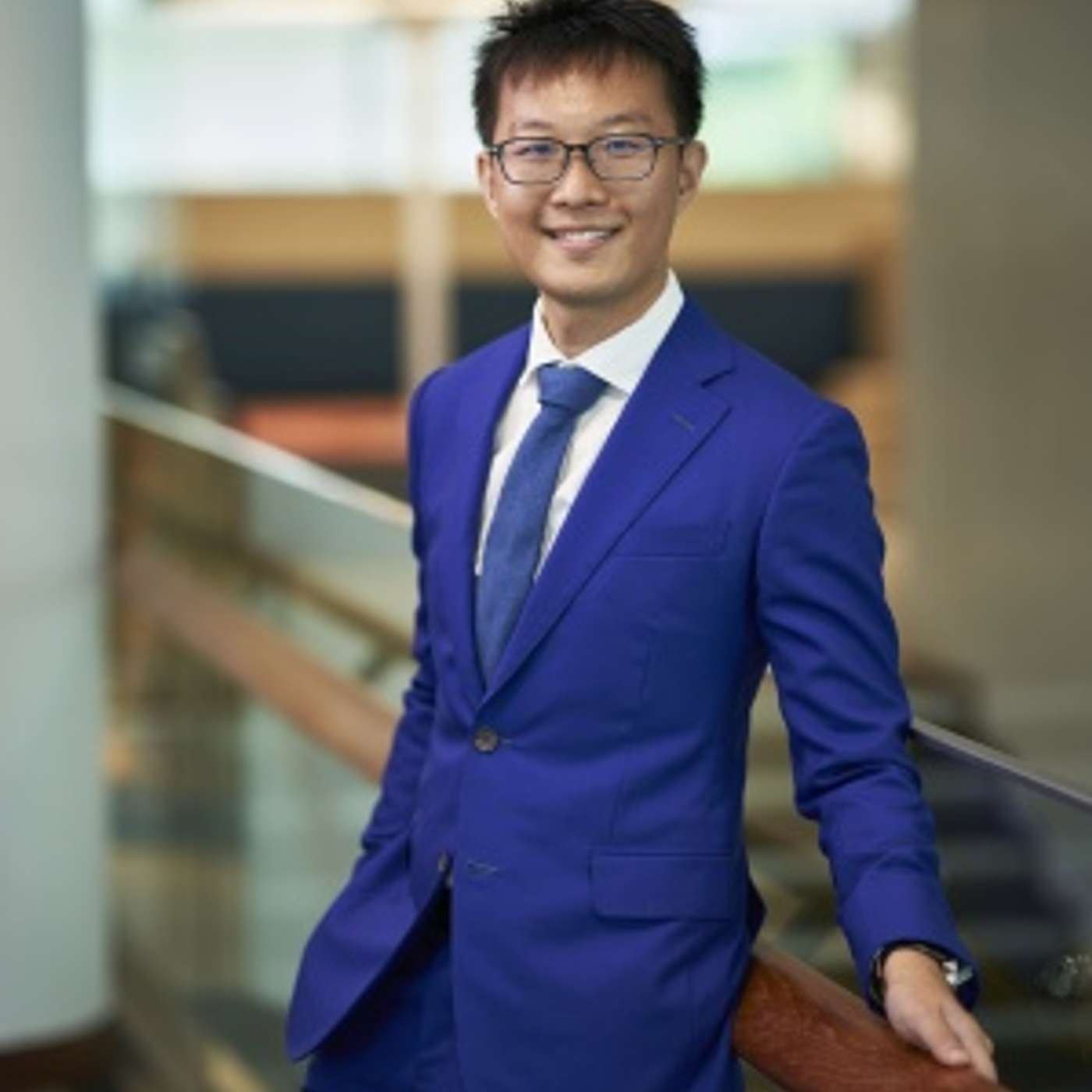
Article to AudioGender and Workplace Mistreatment, with Dr. Kenneth TaiDr. Kenneth Tai is a faculty member at the Lee Kong Chian School of Business at Singapore Management University. This episode focused on his research on gender and workplace mistreatment. He discussed how men and women receive mistreatment in the workplace. The article referenced in the episode:Tai, K., Lee, K., Kim, E., Johnson, T. D., Wang, W., Duffy, M. K., & Kim, S. (2022). Gender, bottom-line mentality, and workplace mistreatment: The roles of gender norm violation and team gender composition. Journal of Applied Psychology, 107(5), 854–865. https://doi.org/10.1037/apl0000936
2024-05-0212 min
I’m Glad I Know That Now!Trust, with Dr. Peter KimHave you ever wondered how trust really works? Why do we trust others, and why do they trust us? It turns out that trust involves judgments of both competence and integrity, each of which matter a lot for how we’re trusted, and how—and if!—we’re forgiven if we break that trust. Dr. Kim offers four guiding lessons of wisdom for managing trust. In his words: first, start with the premise that most of us want to be good. Second, recognize the complexity of truth—take time to exchange stories and take the time to really listen. Third, rec...
2024-03-0439 min
Article to AudioReadiness Theory: A New Approach to Understanding Mediated Prenegotiation and Negotiation Processes Leading to Peace AgreementsDr. Amira Schiff is a professor and the Director of the Conflict Management, Resolution, and Negotiation Graduate Program at Bar-Ilan University. As a researcher in international conflict resolution, she specializes in the intricacies of conflict management and the dynamics of peace processes. Her influential work, particularly the article 'Reaching a Mutual Agreement: Readiness Theory and Coalition Building in the Aceh Peace Process,' earned the prestigious NCMR award for the best paper in 2014. Dr. Schiff has a prolific publication record, contributing to key journals in the field such as NCMR, the International Journal of Conflict Management and the International...
2024-02-0327 min
I’m Glad I Know That Now!Leadership, with author and leader Paul FayadWhat does a rowboat have to do with leadership? It turns out to be a powerful metaphor to understand both positive leadership and our own contributions—and potential areas for self-development—for the organization. In this episode, author, film producer, humanitarian, serial entrepreneur, former and current CEO, lifelong learner, and constant questioner Paul Fayad teaches us how to recognize the role of positive leadership and how to use it in organizations, to focus on the rowers and the work that they accomplish in order to increase productivity and lower turnover in organizations, and to understand that personalities are stable and...
2023-11-121h 03
Article to AudioFrom Theory to Practice and Back Again: Lessons from Hostage Negotiation for Conflict ManagementDeborah A. Cai (Ph.D., Michigan State University) is professor and senior associate dean in the Klein College of Media and Communication at Temple University, and she is a faculty member in the Media and Communication doctoral program. Dr. Cai is an international researcher with scholarly and professional expertise in intercultural communication, persuasion, negotiation and conflict management. She has conducted research in China, Japan, and the U.S., and she has trained political and business leaders from Afghanistan, China, Kazakhstan, and developing nations from Asian Pacific Economic Commission (APEC) and the State Department’s leadership program. Deborah is a Fe...
2023-10-2319 min
I’m Glad I Know That Now!Part II: Psychology of Hierarchy, with Dr. Nicholas HaysDr. Nicholas Hays is a faculty member at the Broad College of Business at Michigan State University. This episode focused on his research on the psychology of hierarchy. He discussed how different hierarchies influence individuals' experiences and group processes. Articles referenced in the episode:Bendersky, C., & Hays, N. A. (2012). Status conflict in groups. Organization Science, 23(2), 323-340. https://doi.org/10.1287/orsc.1110.0734Hays, N. A., & Bendersky, C. (2015). Not all inequality is created equal: Effects of status versus power hierarchies on competition for upward mobility. Journal of Personality and Social Psychology, 108(6), 867-882. https://doi.or...
2023-10-0614 min
I’m Glad I Know That Now!Part I: Psychology of Hierarchy, with Dr. Nicholas HaysDr. Nicholas Hays is a faculty member at the Broad College of Business at Michigan State University. This episode focused on his research on the psychology of hierarchy. He discussed how different hierarchies influence individuals' experiences and group processes. Articles referenced in the episode:Bendersky, C., & Hays, N. A. (2012). Status conflict in groups. Organization Science, 23(2), 323-340. https://doi.org/10.1287/orsc.1110.0734Hays, N. A., & Bendersky, C. (2015). Not all inequality is created equal: Effects of status versus power hierarchies on competition for upward mobility. Journal of Personality and Social Psychology, 108(6), 867-882. https://doi.or...
2023-10-0613 min
Article to AudioGetting off to a "Hot" Start: How the Timing of Expressed Anger Influences Relational Outcomes in NegotiationDr. Hunsaker is a Global Network Assistant Professor of Management and Organizations at the Stern School of Business, New York University. He has a joint appointment at NYU Shanghai. His research interests include negotiation, emotion, culture, and subjective value. He teaches courses on negotiation, conflict management, and organizational behavior and has presented research all over the world. His greatest achievement—which requires his best negotiation, communication, and organizational skills—is raising a beautiful family of 8 children with his wife and best friend, Melissa.Dr. Teng is Assistant Professor of Management at Penn State Harrisburg. He received...
2023-10-0228 min
I’m Glad I Know That Now!Part II: Interventions for Gender Bias, with Dr. Corinne BenderskyCorinne Bendersky is a Professor and Area Chair of Management and Organizations at UCLA Anderson School of Management. She is an expert in workplace conflict, status, justice, and diversity and inclusion in teams and organizations. In recent projects, Dr. Bendersky has developed interventions to reduce the gender bias experienced by women who work in extremely male-dominated professions, such as the U.S. fire service. Her interventions have also been used to reduce the endorsement of sexist supervisors. Articles referenced in the episode:Danbold, F., & Bendersky, C. (2020). Balancing professional prototypes increases th...
2023-05-1610 min
I’m Glad I Know That Now!Part I: Interventions for Gender Bias, with Dr. Corinne BenderskyCorinne Bendersky is a Professor and Area Chair of Management and Organizations at UCLA Anderson School of Management. She is an expert in workplace conflict, status, justice, and diversity and inclusion in teams and organizations. In recent projects, Dr. Bendersky has developed interventions to reduce the gender bias experienced by women who work in extremely male-dominated professions, such as the U.S. fire service. Her interventions have also been used to reduce the endorsement of sexist supervisors. Articles referenced in the episode:Danbold, F., & Bendersky, C. (2020). Balancing professional prototypes increases th...
2023-05-1613 min
Article to AudioEpisode 6: Using Emotions to Frame Issues and Identities in Conflict: Farmer Movements on Social Media Tim Stevens is an interdisciplinary scientist with expertise on the role of social media and ICT in social interactions. For his PhD research he studied social media dynamics in agro-food governance: https://nam10.safelinks.protection.outlook.com/?url=https%3A%2F%2Fsites.google.com%2Fview%2Ftimstevensphd%2Fhome&data=05%7C01%7CMichael.Gross%40colostate.edu%7Ced69a171c64a458e552f08db29fb18a6%7Cafb58802ff7a4bb1ab21367ff2ecfc8b%7C0%7C0%7C638149930672519013%7CUnknown%7CTWFpbGZsb3d8eyJWIjoiMC4wLjAwMDAiLCJQIjoiV2luMzIiLCJBTiI6Ik1haWwiLCJXVCI6Mn0%3D%7C3000%7C%7C%7C&sdata=jp8Y0szUNjpPVv4sf8F%2F5%2FXBl14RdJ53r1C...
2023-03-2724 min
I’m Glad I Know That Now!Part II: The Theory of Ethical Accounting, with Dr. Peter KimHave you ever wondered if you’re being fair and consistent when you evaluate your own actions versus the actions of others from an ethical standpoint? It turns out that we’re often not, but this inconsistency isn’t necessarily because we’re trying to be self-serving. Instead, there are fundamental differences in our access to information related to ourselves versus others, such as the reasons underlying a certain behavior, or calculations of the behavior’s potential costs and benefits. These informational differences can create cognitive distortions in how we address four core questions – regarding the unethicality, liability, insolvency, and incompen...
2022-12-2318 min
I’m Glad I Know That Now!Part I: The Theory of Ethical Accounting, with Dr. Peter KimHave you ever wondered if you’re being fair and consistent when you evaluate your own actions versus the actions of others from an ethical standpoint? It turns out that we’re often not, but this inconsistency isn’t necessarily because we’re trying to be self-serving. Instead, there are fundamental differences in our access to information related to ourselves versus others, such as the reasons underlying a certain behavior, or calculations of the behavior’s potential costs and benefits. These informational differences can create cognitive distortions in how we address four core questions – regarding the unethicality, liability, insolvency, and incompen...
2022-12-2323 min
Article to AudioEpisode 5: Prosocial lies: When Deception Breeds TrustEmma E. Levine is an Associate Professor of Behavioral Science and the Charles E. Merrill Faculty Scholar at the University of Chicago Booth School of Business. Levine studies the psychology of honesty, trust, and ethical dilemmas. She holds a PhD from The Wharton School, University of Pennsylvania. Maurice Schweitzer is the Cecelia Yen Koo Professor of Operations, Information, and Decisions and Management at the Wharton School at the University of Pennsylvania. Maurice studies negotiations and decision making.Article CitationLevine, Emma E. & Schweitzer, Maurice E., 2015. "Prosocial lies: When deception breeds trust," Organizational Be...
2022-12-1531 min
I’m Glad I Know That Now!Part 2: Relational Conversations and Holistic Conflict Management for Indigenous Employees in CanadaWendi L. Adair (Ph.D., Northwestern University) is Professor of Industrial-Organizational Psychology and Director of the Culture at Work Lab at University of Waterloo, Ontario. Wendi is co-Principal Investigator of Indigenous Workways, a collaborative project among faculty and Indigenous Student Centres in Ontario to develop a sustainable solution to underemployment among Ontario’s Indigenous workforce by empowering Indigenous youth with career mentors and opportunities, and Ontario employers with relational, respectful, reciprocal, and relevant workplace communication and climate practices. Her other current research examines the impact of culture on communication, for example what is said and what is not said, an...
2022-10-3122 min
I’m Glad I Know That Now!Part 1: Relational Conversations and Holistic Conflict Management for Indigenous Employees in CanadaWendi L. Adair (Ph.D., Northwestern University) is Professor of Industrial-Organizational Psychology and Director of the Culture at Work Lab at University of Waterloo, Ontario. Wendi is co-Principal Investigator of Indigenous Workways, a collaborative project among faculty and Indigenous Student Centres in Ontario to develop a sustainable solution to underemployment among Ontario’s Indigenous workforce by empowering Indigenous youth with career mentors and opportunities, and Ontario employers with relational, respectful, reciprocal, and relevant workplace communication and climate practices. Her other current research examines the impact of culture on communication, for example what is said and what is not said, an...
2022-10-3123 min
I’m Glad I Know That Now!Emotional dynamics, with Dr. Stéphane CôtéHave you ever thought about whether emotions really matter in negotiation, or if we can simply ignore them? It turns out the answer is a resounding yes, they matter, and no, we cannot ignore them! There’s a lot we know about how emotions influence negotiation processes and outcomes, and a lot more we’re trying to find out. In this episode, Dr. Stéphane Côté from the Rotman School of Management at the University of Toronto teaches us important ways that emotions influence us, our counterparts, the negotiation process, and its outcomes. Dr. Côté also explains why it’s...
2022-06-0226 min
I’m Glad I Know That Now!Searching for Trust in the Global EconomyJeanne Brett is the DeWitt W. Buchanan, Jr. Professor Emerita of Dispute Resolution and Organizations at Northwestern University.She initiated Kellogg’s course on negotiations in 1981. She is a founder and was the director of Kellogg’s Dispute Resolution Research Center. She is now the President of Negotiation and Team Resources, a not for profit supporting research and teaching in the field of negotiation. Her 2022 book with Tyree Mitchell is Searching for Trust in the Global Economy. Tyree Mitchell completed his predoctoral fellowship at the Kellogg School of Management at Northwestern University and receiv...
2022-05-1426 min
I’m Glad I Know That Now!Part 3: On The Origins of Teaching Negotiation and Our Discipline in Business SchoolsJeanne Brett is the DeWitt W. Buchanan, Jr. Professor Emerita of Dispute Resolution and Organizations at Northwestern University.She initiated Kellogg’s course on negotiations in 1981. She is a founder and was the director of Kellogg’s Dispute Resolution Research Center. She is now the President of Negotiation and Team Resources, a not for profit supporting research and teaching in the field of negotiation. Her 2022 book with Tyree Mitchell is Searching for Trust in the Global Economy. Roy Lewicki is the Irving Abramowitz Professor Emeritus of Management and Human Resources at The Ohio State...
2022-04-0430 min
I’m Glad I Know That Now!Part 2: On The Origins of Teaching Negotiation and Our Discipline in Business SchoolsJeanne Brett is the DeWitt W. Buchanan, Jr. Professor Emerita of Dispute Resolution and Organizations at Northwestern University.She initiated Kellogg’s course on negotiations in 1981. She is a founder and was the director of Kellogg’s Dispute Resolution Research Center. She is now the President of Negotiation and Team Resources, a not for profit supporting research and teaching in the field of negotiation. Her 2022 book with Tyree Mitchell is Searching for Trust in the Global Economy. Roy Lewicki is the Irving Abramowitz Professor Emeritus of Management and Human Resources at The Ohio State...
2022-04-0425 min
I’m Glad I Know That Now!Part 1: On The Origins of Teaching Negotiation and Our Discipline in Business SchoolsJeanne Brett is the DeWitt W. Buchanan, Jr. Professor Emerita of Dispute Resolution and Organizations at Northwestern University.She initiated Kellogg’s course on negotiations in 1981. She is a founder and was the director of Kellogg’s Dispute Resolution Research Center. She is now the President of Negotiation and Team Resources, a not for profit supporting research and teaching in the field of negotiation. Her 2022 book with Tyree Mitchell is Searching for Trust in the Global Economy. Roy Lewicki is the Irving Abramowitz Professor Emeritus of Management and Human Resources at The Ohio State...
2022-04-0417 min
Article to AudioEpisode 4, Part 2 Explaining Differences in Men and Women's Use of Unethical Tactics in NegotiationsJason Pierce is an Assistant Professor of Management at the University of North Carolina Greensboro. He earned his Ph.D. in Management at Indiana University and has held other faculty appointments at the University of Southern Mississippi and Universidad Adolfo Ibáñez in Santiago, Chile. Prior to beginning his academic career, Jason obtained his undergraduate degree in Computer Science from Georgia Tech and worked as a network engineer for Nortel Networks. Jason’s areas of expertise now include ethically charged responses to conflict, philosophy of science, and organizational alignment. His current projects cover topics such as sex-differences in ne...
2022-03-0816 min
Article to AudioEpisode 4: Explaining Differences in Men and Women's Use of Unethical Tactics in NegotiationsJason Pierce is an Assistant Professor of Management at the University of North Carolina Greensboro. He earned his Ph.D. in Management at Indiana University and has held other faculty appointments at the University of Southern Mississippi and Universidad Adolfo Ibáñez in Santiago, Chile. Prior to beginning his academic career, Jason obtained his undergraduate degree in Computer Science from Georgia Tech and worked as a network engineer for Nortel Networks. Jason’s areas of expertise now include ethically charged responses to conflict, philosophy of science, and organizational alignment. His current projects cover topics such as sex-differences in ne...
2022-03-0820 min
I’m Glad I Know That Now!Restorative Justice: Final Thoughts on Restorative JusticeRestorative Justice: Final Thoughts on Restorative JusticePart 5 of 5, recorded at the 2021 Annual Meeting of the Academy of Management.Speaking at the Panel Symposium: Meena Andiappan, (University of Toronto) has two main axes of research: emotions, and ethics. Dr. Andiappan's research focuses on individual-level and organizational-level responses to wrongdoing, and the role of emotion in workplace relationships. Her work has been published at Academy of Management Review, Journal of Applied Psychology, Human Relations, Journal of Business Ethics and Journal of Business Research amongst other outlets. Dr. Andiappan's current projects include theoretical studies on c...
2022-02-1311 min
I’m Glad I Know That Now!Restorative Justice: Contextualizing or Problematizing Restorative Justice for Practicing Managers in the FutureRestorative Justice: Contextualizing or Problematizing Restorative Justice for Practicing Managers in the FuturePart 4 of 5, recorded at the 2021 Annual Meeting of the Academy of Management.Speaking at the Panel Symposium: Meena Andiappan, (University of Toronto) has two main axes of research: emotions, and ethics. Dr. Andiappan's research focuses on individual-level and organizational-level responses to wrongdoing, and the role of emotion in workplace relationships. Her work has been published at Academy of Management Review, Journal of Applied Psychology, Human Relations, Journal of Business Ethics and Journal of Business Research amongst other outlets. Dr. Andiappan's c...
2022-02-1321 min
I’m Glad I Know That Now!Restorative Justice: Will Restorative Justice Become a Core Competency for Organizations?Restorative Justice: Will Restorative Justice Become a Core Competency for Organizations?Part 3 of 5, recorded at the 2021 Annual Meeting of the Academy of Management.Speaking at the Panel Symposium: Meena Andiappan, (University of Toronto) has two main axes of research: emotions, and ethics. Dr. Andiappan's research focuses on individual-level and organizational-level responses to wrongdoing, and the role of emotion in workplace relationships. Her work has been published at Academy of Management Review, Journal of Applied Psychology, Human Relations, Journal of Business Ethics and Journal of Business Research amongst other outlets. Dr. Andiappan's current projects i...
2022-01-3022 min
I’m Glad I Know That Now!Restorative Justice: The Untapped Potential of Restorative Justice to Significantly Improve our WorkplacesRestorative Justice: The Untapped Potential of Restorative Justice to Significantly Improve our WorkplacesPart 2 of 5, recorded at the 2021 Annual Meeting of the Academy of Management.Speaking at the Panel Symposium: Meena Andiappan, (University of Toronto) has two main axes of research: emotions, and ethics. Dr. Andiappan's research focuses on individual-level and organizational-level responses to wrongdoing, and the role of emotion in workplace relationships. Her work has been published at Academy of Management Review, Journal of Applied Psychology, Human Relations, Journal of Business Ethics and Journal of Business Research amongst other outlets. Dr. Andiappan's c...
2022-01-2420 min
Article to AudioEpisode 3: Negotiation Contexts: How and Why They Shape Women’s and Men’s Decision to NegotiateEpisode 3 article abstract: In the substantial body of research on gender differences in the initiation of negotiation, the findings consistently favor men (Kugler et al., 2018). We propose that this research itself is gendered because negotiation research has traditionally focused on masculine negotiation contexts. In the current study, we replicate the gender effect in initiating negotiations (favoring men) and provide an empirically based selection of “masculine,” “feminine,” and “neutral” negotiation contexts, which can be used for future negotiation research. We show that the negotiation context shapes gender differences such that in specific social contexts, women tend to have even higher initi...
2022-01-2423 min
I’m Glad I Know That Now!Restorative Justice: What is Restorative Justice?Restorative Justice: What is Restorative Justice?Part 1 of 5, recorded at the 2021 Annual Meeting of the Academy of Management.Speaking at the Panel Symposium: Meena Andiappan, (University of Toronto) has two main axes of research: emotions, and ethics. Dr. Andiappan's research focuses on individual-level and organizational-level responses to wrongdoing, and the role of emotion in workplace relationships. Her work has been published at Academy of Management Review, Journal of Applied Psychology, Human Relations, Journal of Business Ethics and Journal of Business Research amongst other outlets. Dr. Andiappan's current projects include theoretical studies on compassion a...
2021-12-1324 min
I’m Glad I Know That Now!Full episode: Trust, with Dr. Dejun (Tony) KongHave you ever thought about what trust in negotiation really means? It turns out there are many different definitions and facets to trust, and a lot more we don’t yet know—but we’re trying to find out—about trust in negotiation. In this episode, Dr. Dejun (Tony) Kong from the University of South Florida Muma College of Business shared with us insights about the meaning and importance of trust in negotiation. Trust is a dynamic, interactive process that is rich in nuance and complex in practice. Dr. Kong’s research has found some surprising findings on the benefits...
2021-12-1319 min
I’m Glad I Know That Now!Trailer: Trust, with Dr. Dejun (Tony) KongDejun “Tony” Kong (Ph.D., Washington University in St. Louis) is an Associate Professor in Management and the Faculty Director of the Bishop Center for Ethical Leadership at the University of South Florida’s Muma College of Business. His research interests include trust, negotiation, leadership, ethics, positive psychology (e.g., humor, gratitude), culture, and diversity/equity/inclusion (DEI). His research (over 50 published articles) has appeared in numerous top journals in Management and Psychology. In 2016, he published his co-edited book “Leading through Conflict: Into the Fray.” He has received numerous research, teaching, and service awards. For example, in 2021, he received the Most I...
2021-12-1300 min
Article to AudioEpisode 2, Part 2: "There is No Away: Where Do People Go When They Avoid an Interpersonal Conflict?"This is Part 2 of a two-part episode.Episode 2 article abstract: When people avoid conflict, there is no “away.” Where do they go physically or mentally? Both engaging and avoiding have a push and a pull. If we knew where avoiders go, we could study the pull of avoidance. This is a descriptive study (N = 446) of interpersonal conflict. We found that physical and mental avoidance appeared with similar frequency, and that they could occur in combination. People often recognized their need for avoidance early, based on the topic being familiar or various signals of trouble. Avoidance during the conf...
2021-09-2619 min
Article to AudioEpisode 2, Part 1: "There is No Away: Where Do People Go When They Avoid an Interpersonal Conflict?"This is Part 1 of a two-part episode. Episode 2 article abstract: When people avoid conflict, there is no “away.” Where do they go physically or mentally? Both engaging and avoiding have a push and a pull. If we knew where avoiders go, we could study the pull of avoidance. This is a descriptive study (N = 446) of interpersonal conflict. We found that physical and mental avoidance appeared with similar frequency, and that they could occur in combination. People often recognized their need for avoidance early, based on the topic being familiar or various signals of trouble. Avoidance during the conf...
2021-09-2626 min
I’m Glad I Know That Now!Full episode: Subjective value, with Dr. Jared CurhanIs negotiation all about objective outcomes like money and how good a deal we got? It turns out that’s not the full story. In this episode, Dr. Jared Curhan from the MIT Sloan School of Management teaches us about the meaning and importance of subjective value in negotiation. Dr. Curhan’s findings show we can actually build subjective value – that is, how we feel at the end of a negotiation (and how our counterpart feels) – in our negotiations without sacrificing our objective outcomes. Moreover, Dr. Curhan’s research shows that our subjective value influences our future negotiation performance in importa...
2021-07-0817 min
I’m Glad I Know That Now!Trailer: Subjective value, with Dr. Jared CurhanJared R. Curhan is the Gordon Kaufman Professor and an Associate Professor of Work and Organization Studies at the MIT Sloan School of Management, as well as Faculty Director of MIT’s Behavioral Research Lab. Curhan specializes in the psychology of negotiation and conflict resolution. A recipient of support from the National Science Foundation, he has pioneered a social psychological approach to the study of “Subjective Value” in negotiation. He also studies creative problem-solving and micro-processes in negotiation. Curhan is Vice Chair for Research and a member of the Executive Committee of the Program on Negotiation (PON) at Harvard Law Schoo...
2021-07-0800 min
I’m Glad I Know That Now!Part II: Individual differences, with Dr. Hillary Anger ElfenbeinSome people feel that they were born as good negotiators, but others – perhaps most of us – don’t feel that way. Should we just give up and accept our fates as bad negotiators? The answer is a resounding no! In this two-part episode, Dr. Hillary Anger Elfenbein from the Washington University in St. Louis Olin School of Business teaches us about how our personality and other traits – our individual differences – influence how we negotiate. In fact, these tendencies are deeply reinforced and may even be partly genetic. However, luckily for us there is no “right answer,” and every personality type has its p...
2021-07-0819 min
I’m Glad I Know That Now!Part I: Individual differences, with Dr. Hillary Anger ElfenbeinSome people feel that they were born as good negotiators, but others – perhaps most of us – don’t feel that way. Should we just give up and accept our fates as bad negotiators? The answer is a resounding no! In this two-part episode, Dr. Hillary Anger Elfenbein from the Washington University in St. Louis Olin School of Business teaches us about how our personality and other traits – our individual differences – influence how we negotiate. In fact, these tendencies are deeply reinforced and may even be partly genetic. However, luckily for us there is no “right answer,” and every personality type has its p...
2021-07-0818 min
I’m Glad I Know That Now!Trailer: Individual differences, with Dr. Hillary Anger ElfenbeinIn her day job, Hillary Anger Elfenbein is the John and Ellen Wallace Distinguished Professor at the Olin School of Business at Washington University in St. Louis. Her research focuses on emotion in the workplace, including emotional intelligence, interpersonal relationships, and subjective feelings about negotiation. Her work has appeared in leading academic journals, and she has served as an Associate Editor at Management Science. She holds a Ph.D. in Organizational Behavior, a Master’s degree in Statistics, and undergraduate degrees in Physics and Sanskrit, all from Harvard University. In a Forrest Gump moment, her research was discussed on the fl...
2021-07-0800 min
Article to AudioEpisode 1: "Servant Leadership, Third-Party Behavior, and Emotional Exhaustion of Followers"Episode 1 article abstract: Conflicts are ubiquitous in all life’s domain where people live and perform interdependent tasks, including convents. Managing conflicts among followers is an essential responsibility of leaders. The way leaders behave while managing such conflicts have received little academic attention; available studies have focused on business contexts. This study aimed to examine the relationship between servant leadership, and emotional exhaustion through team conflicts, and further investigates the mediating role of leaders’ third-party conflict behaviors such as avoiding, forcing, and problem-solving. Data were gathered from 453 religious sisters (followers), in 166 convents, in a Catholic Women Religious Institute mostly base...
2021-07-0624 min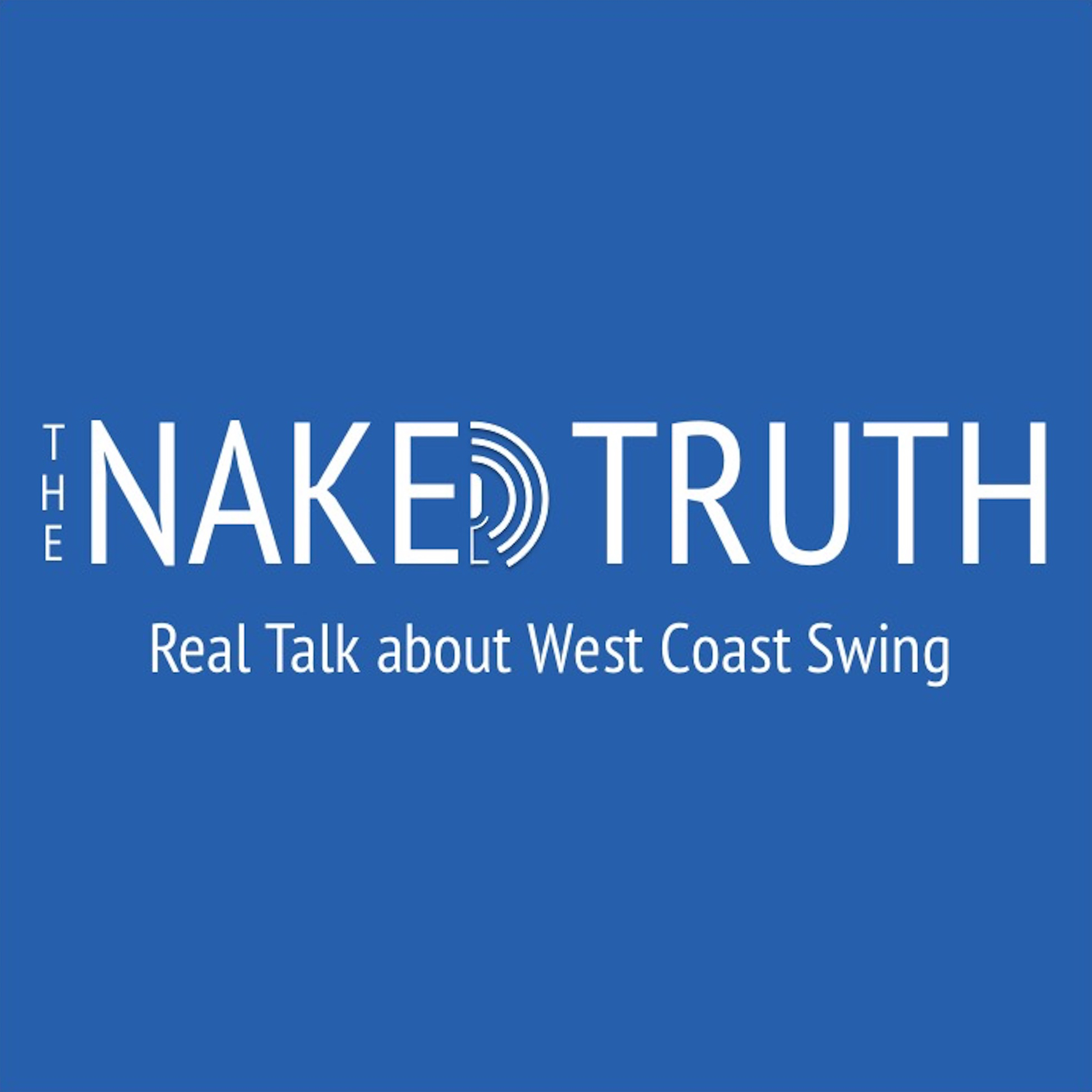
The Naked Truth: Real Talk About West Coast SwingCulture
Culture can be difficult to recognize or even define, and yet it permeates and shapes the dynamic of any group of people that interacts regularly. In our global West Coast Swing community, we have a culture – and many subcultures – that dictate how we think, feel, and act. In this episode, we sit down with Dr. Jennifer Parlamis, Associate Professor at the University of San Francisco School of Management, to talk about organizational culture more broadly and our dance community culture more specifically. The topic is a big one to chew on in one hour, but we look at some of t...
2019-09-261h 01
The Naked Truth: Real Talk about West Coast SwingCulture
Culture can be difficult to recognize or even define, and yet it permeates and shapes the dynamic of any group of people that interacts regularly. In our global West Coast Swing community, we have a culture - and many subcultures - that dictate how we think, feel, and act. In this episode, we sit down with Dr. Jennifer Parlamis, Associate Professor at the University of San Francisco School of Management, to talk about organizational culture more broadly and our dance community culture more specifically. The topic is a big one to chew on in one hour, but we look at...
2019-09-261h 01
The Naked Truth: Real Talk about West Coast SwingCultureCulture can be difficult to recognize or even define, and yet it permeates and shapes the dynamic of any group of people that interacts regularly. In our global West Coast Swing community, we have a culture - and many subcultures - that dictate how we think, feel, and act. In this episode, we sit down with Dr. Jennifer Parlamis, Associate Professor at the University of San Francisco School of Management, to talk about organizational culture more broadly and our dance community culture more specifically. The topic is a big one to chew on in one hour, but we look at...
2019-09-261h 01